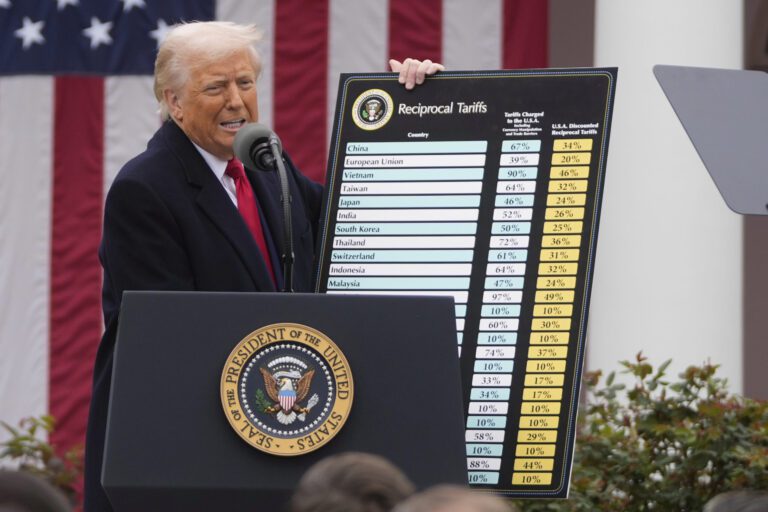Trump Tariffs Under Legal Scrutiny: Appeals Court Set to Decide
The Trump administration is pushing for an appeals court to maintain the controversial tariffs imposed by President Trump while a legal battle unfolds regarding their legality. This legal confrontation was brought to the forefront following an unfavorable ruling from a New York court.
Background on Tariffs
In early April, President Trump invoked the International Emergency Economic Powers Act (IEEPA) to implement his "Liberation Day" tariffs, marking a significant part of his economic strategy. He contends that the ongoing trade deficit constitutes an economic emergency for the United States.
Key Arguments for Tariffs
- Presidential Authority: The administration asserts that blocking the tariffs "would undermine the President’s ability to carry out foreign-policy and national-security objectives."
- Legal Justification: In its filing with the U.S. Court of Appeals for the Federal Circuit, the administration contends that the initial ruling from the Court of International Trade was beyond judicial purview.
Legal Challenges
The tariffs have incited multiple lawsuits, including:
- Lawsuit from Democratic State Attorneys General: A coalition challenging the legitimacy of the tariffs.
- Small Businesses Opposition: A group arguing that the import taxes inflict irreparable harm on their operations.
Court Ruling
The Court of International Trade ruled the tariffs illegal, with a unanimous decision from three judges appointed by Presidents Reagan, Obama, and Trump. The ruling emphasized that the president had overstepped his authority and effectively usurped Congress’s power to tax.
Current Developments
Following the trade court’s ruling, the appeals court issued a temporary stay that keeps the tariffs intact while further legal discussions continue. However, this stay might be lifted if the court finds that the tariffs exceed presidential authority, even amidst claims of an economic emergency.
Administration’s Response
In response to the court’s decision, the administration maintains that it would likely succeed on appeal, calling the previous ruling an "illegal injunction" that improperly intrudes upon legislative powers.
Quotes from Involved Parties:
- Administration Spokesperson: "We believe the president acted within his rights under IEEPA, and we are prepared to defend that assertion."
- Plaintiffs’ Legal Team: “The argument for unlimited tariff authority is not likely to succeed on appeal.”
Next Steps in the Legal Process
The timeline for the appeals court’s decision remains uncertain. The administration’s lawyers have requested a temporary extension of the stay for seven days, allowing time for an emergency appeal to the Supreme Court if necessary.
Key Points to Watch
- No Clear Timeline: The appeals court has not indicated when a decision will be made.
- Potential Supreme Court Involvement: If the stay is denied, the administration is poised to seek immediate Supreme Court intervention.
Conclusion
As the legal battles over President Trump’s tariffs unfold, the implications for U.S. foreign policy and economic strategies hang in the balance. With significant arguments from both sides, the future of the tariffs will hinge on the upcoming decisions from the appellate court.
For more context on the legal and economic impacts of these tariffs, you can explore International Emergency Economic Powers Act, the Court of International Trade, and updates surrounding the tariffs on The New York Times.


